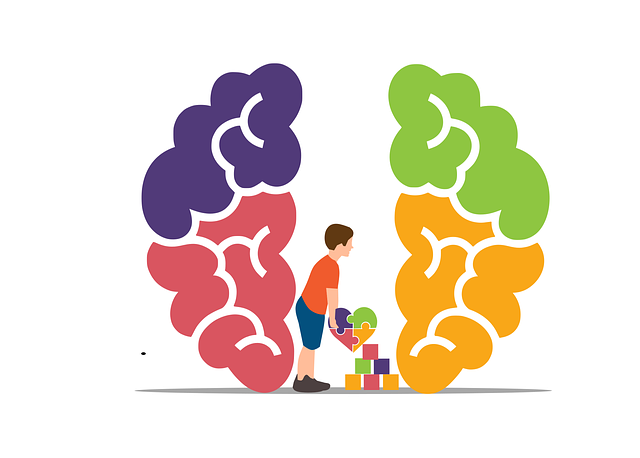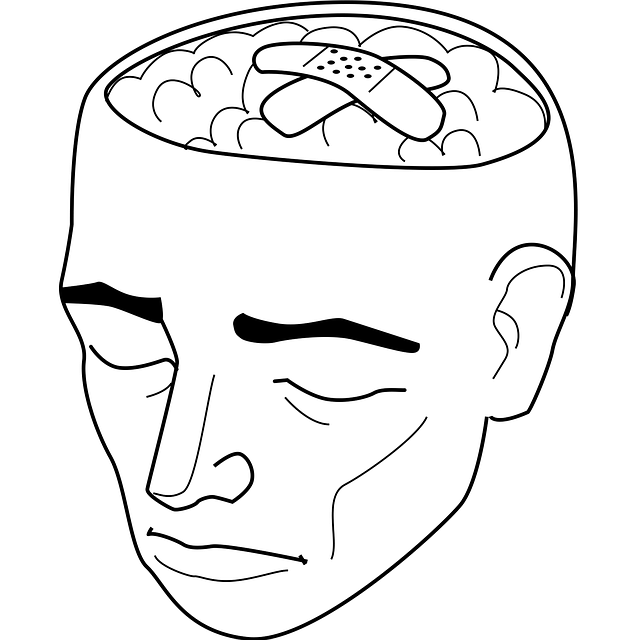Mental health policies in Arvada are crucial for adolescents, addressing challenges like insufficient resources and stigma. Organizations like Arvada Adolescent and Teen Therapy (AATT) offer innovative programs combining Mind Over Matter and Empathy Building Strategies. These evidence-based interventions empower youth with coping skills while advocating for better access to care through advocacy groups and policy analysis. AATT's holistic approach, integrating self-care and traditional therapy, demonstrates the potential for transformative mental health policy in Arvada.
Mental health policies are crucial catalysts for transforming lives, especially adolescents grappling with increasing mental health challenges. This article delves into a comprehensive analysis of current policies, highlighting gaps in adolescent therapy through a review of the intricate landscape. We explore effective advocacy strategies to drive policy change, showcasing the success of Arvada Adolescent and Teen Therapy as a model program. By examining these elements, we aim to empower stakeholders to navigate and improve mental health support for teens.
- Understanding Mental Health Policy: A Foundation for Change
- The Current Landscape: Challenges and Gaps in Adolescent Therapy
- Advocacy Strategies: Empowering Action for Better Policies
- Case Study: Arvada Adolescent and Teen Therapy – A Model for Success
Understanding Mental Health Policy: A Foundation for Change

Mental health policies are a cornerstone for fostering well-being and supporting individuals navigating various challenges. Understanding these policies is essential to drive meaningful change in communities, especially when targeted at adolescents and teens. The current landscape demands a comprehensive approach, where initiatives like Stress Management Workshops Organization’s programs can play a pivotal role. By integrating Mind Over Matter principles and Empathy Building Strategies, these workshops offer a unique perspective on mental health advocacy.
Such efforts not only equip young individuals with coping mechanisms but also foster a supportive environment, crucial for their holistic development. As the need for adolescent and teen therapy in Arvada and beyond grows, policy analysis becomes a powerful tool to ensure resources are allocated effectively, leading to better access and improved outcomes for those seeking mental health services.
The Current Landscape: Challenges and Gaps in Adolescent Therapy

The current landscape of mental health services, particularly for adolescents and teens in Arvada, presents a complex web of challenges and gaps that require urgent attention. While efforts to address youth mental health have increased, there remains a critical need for comprehensive and accessible therapies tailored to this demographic’s unique needs. Many existing programs struggle with limited resources, making it difficult to offer specialized treatments, such as those focused on emotional regulation and risk assessment for mental health professionals.
Adolescent and teen therapy in Arvada often faces barriers related to stigma, underfunding, and a lack of culturally sensitive approaches. The result is that many young individuals go untreated or receive suboptimal care. To bridge these gaps, it’s imperative to advocate for evidence-based interventions, integrate self-care practices into treatment plans, and ensure mental health professionals are equipped with the latest tools and training, including robust risk assessment strategies. By addressing these challenges head-on, we can work towards a more supportive and inclusive system that effectively promotes emotional well-being among our youth.
Advocacy Strategies: Empowering Action for Better Policies

Advocacy plays a pivotal role in shaping mental health policies and ensuring that resources and support reach those who need them most, especially when focusing on adolescent and teen therapy in Arvada. Effective advocacy strategies empower individuals and communities to take action and drive positive change. One key approach is raising awareness through education campaigns that dispel stigma associated with mental illness, encouraging early intervention, and promoting self-care routine development for better mental health.
Organized advocacy groups can influence policy decisions by lobbying government bodies, participating in public consultations, and sharing personal stories to humanize the issue. This strategy, coupled with risk management planning for mental health professionals, ensures that advocates are equipped to handle challenges while advocating for safer and more effective care. By fostering open dialogue and engaging diverse stakeholders, these efforts can lead to improved access to services, better funding allocation, and ultimately, enhanced mental wellness in communities.
Case Study: Arvada Adolescent and Teen Therapy – A Model for Success

Arvada Adolescent and Teen Therapy (AATT) serves as a shining example of effective mental health policy implementation and advocacy. This comprehensive program focuses on providing accessible, tailored support for young individuals struggling with their mental well-being. By integrating evidence-based therapies, AATT empowers adolescents to cultivate inner strength and develop coping mechanisms that promote long-term resilience.
The success of AATT lies in its holistic approach, which goes beyond traditional therapy sessions. They prioritize self-care practices within the therapeutic framework, ensuring that both clients and mental health professionals have access to resources for risk management planning. This dual focus on individual healing and professional support creates a sustainable environment where teens can thrive, demonstrating the potential for transformative change in mental health policy and delivery.
Mental health policy analysis and advocacy are essential components in creating a supportive environment for adolescent therapy. By understanding the current landscape, identifying challenges, and employing effective strategies, we can drive meaningful change. The case study of Arvada Adolescent and Teen Therapy serves as an inspiring model, demonstrating that targeted initiatives can significantly improve access to quality care. Through continued analysis, advocacy, and innovative approaches like those showcased in this article, we can foster a future where mental well-being is prioritized and supported at all levels, ensuring a healthier and more resilient society.














